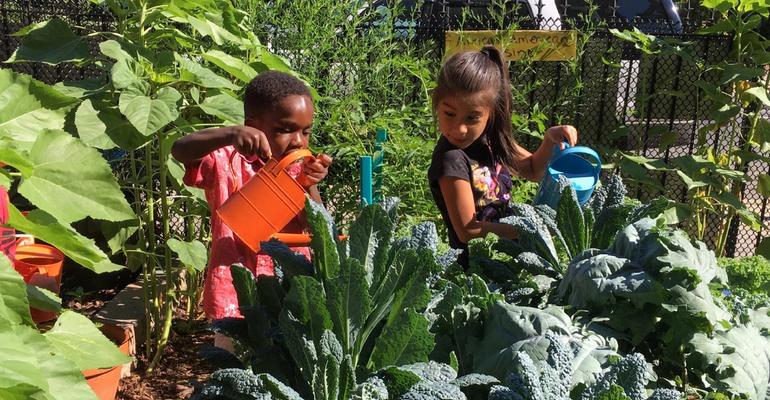Grow Local Jobs & Wages

When local economies prosper, we all benefit. Food is no exception. Every dollar spent on locally-produced and manufactured foods stimulates healthy and resilient economies. Through supply chains that prioritize investment in locally-owned farms and food businesses, institutions contribute to strong and equitable local and regional food economies, especially when investments prioritize producers and business owners of color that have been historically excluded.
Strategies

Increase local purchases
Sourcing from regional growers and food businesses ensures those food dollars will support local farms, create jobs, enable greater transparency, and build community.

Implement a farm to institution program
Farm to institution programs combine procurement, gardens, and education to help kids, families, and communities engage with and learn about their local food system while providing farmers with new markets for their products.

Diversify your suppliers
By adopting supplier diversification strategies, institutions can proactively address market barriers for historically excluded food and farm business owners and create more resilient and mutually beneficial relationships with their suppliers.
Impact Calculator
Increased investment in locally-produced foods could also:

Help close the racial wealth gap and boost the national Gross Domestic Product.

Help keep wages and tax dollars in the local economy — especially when invested in worker-owned and farmer-owned cooperatives.

Expand farm to school programs that enrich the connection students have with healthy food.
Real-World Examples
Learn about more ways to advance good food policies in your community.


